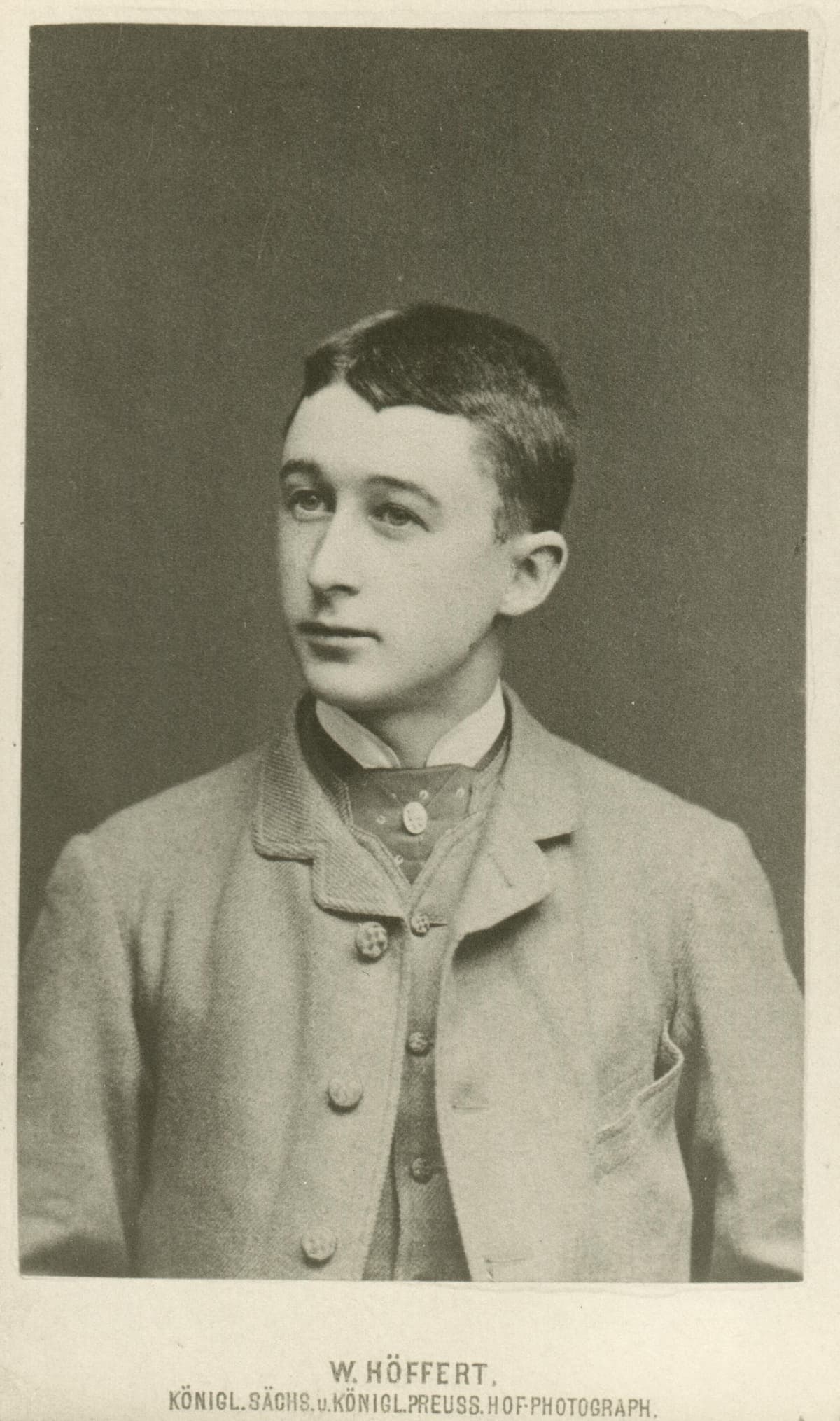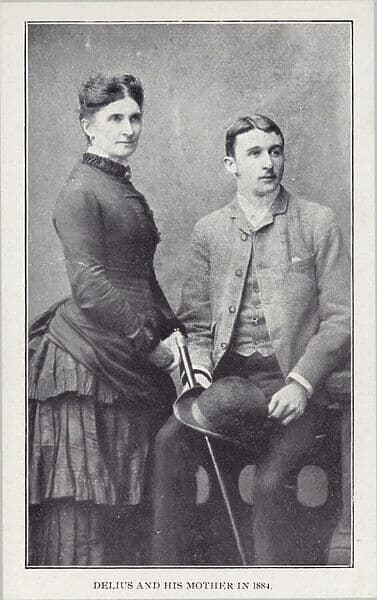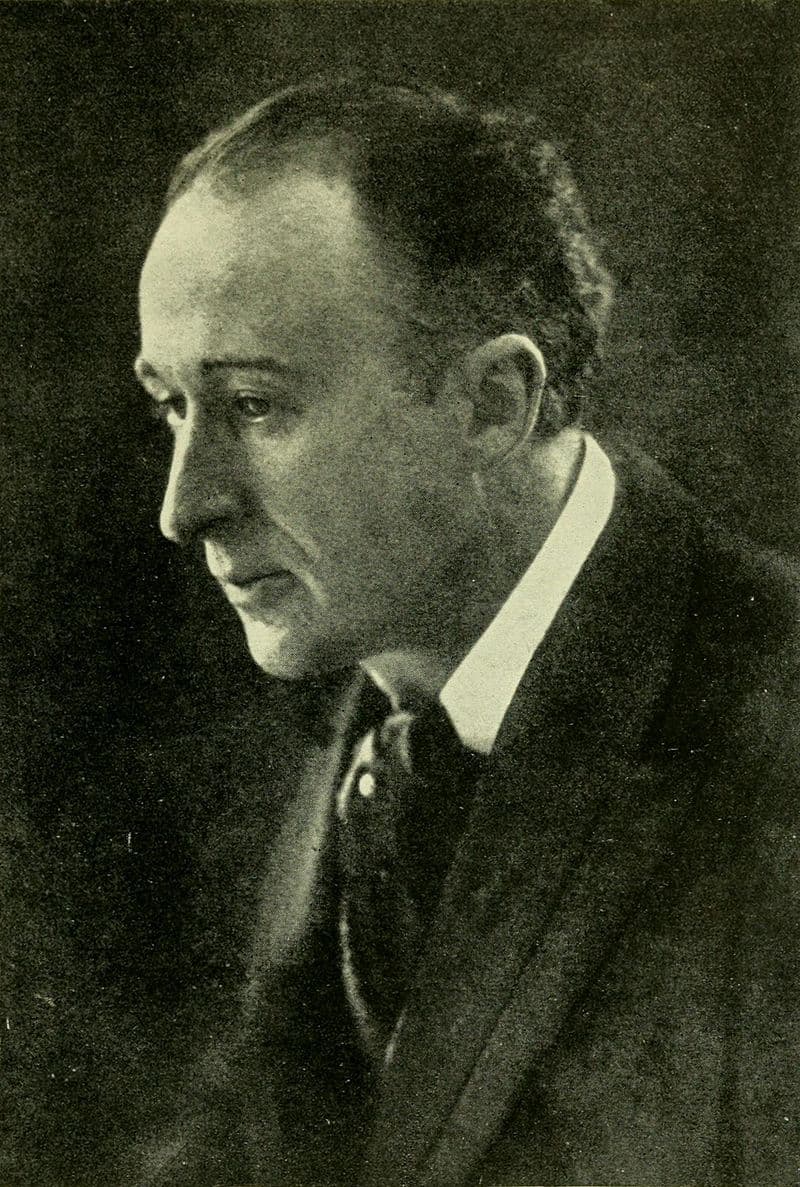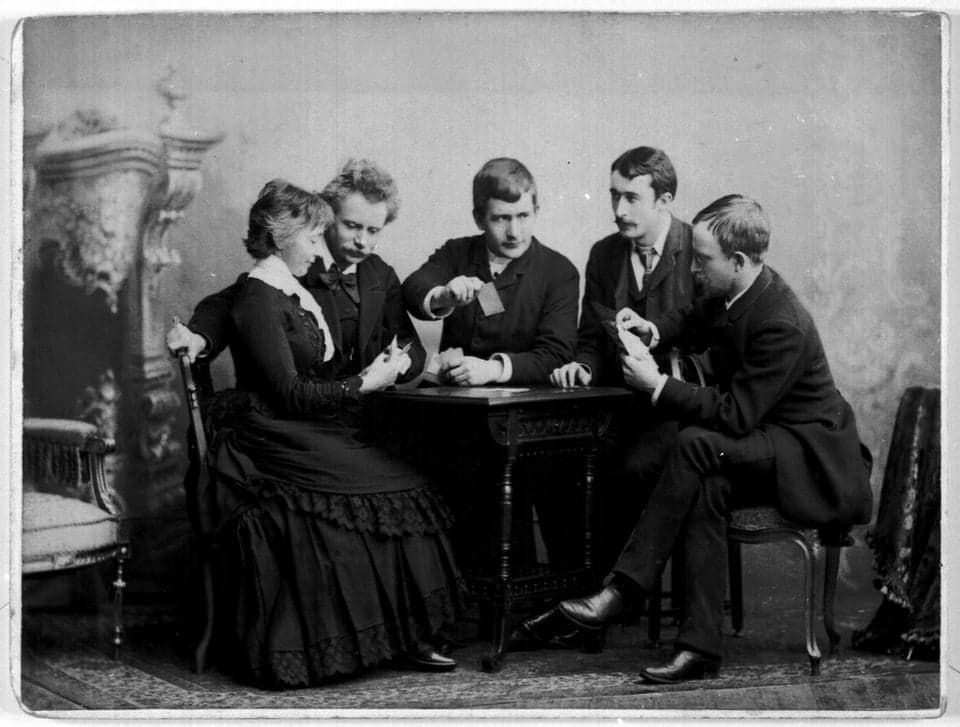Fritz Albert Theodor Delius, better known to the world in later years as Frederick Delius, was born on 29 January 1862 in Bradford, a city in West Yorkshire, England. His parents came from Bielefeld in Germany, and his father Julius moved to England to further his career as a wool merchant.
Family Background

The young Frederick Delius, c. 1870s
Fritz was the second of four sons and he had ten sisters, with his father ruling the household with an iron fist. Julius Delius was described as “proud, unbending and intolerant, a characteristic product of Prussian rigidity; and while he may have inspired respect, he failed to stimulate affections.” His mother Elise Pauline, née Krönig had an outwardly milder demeanor but was equally dogmatic. Frederick was a sickly child, “but he was blessed with a nature both cheerful and resilient, and was thereby able to endure the repressive environment in which he was being raised.” The Delius household was highly musical, and a number of famous musicians such as Joseph Joachim and Carlo Alfredo Piatti played for the family. Young Frederick had piano and violin lessons, but there was no question of him having a musical career.
Frederick Delius: North Country Sketches
Delius’ Spiritual Home: Norway

Frederick Delius and his mother, 1884
Frederick was an indifferent student, and after four years at Bradford Grammar School, he was moved to the International College at Isleworth. He subsequently served as an apprentice in the wool trade, first in Gloucestershire, then at centers in France, Germany, and Sweden. Going against his father’s instructions, he also visited the French Riviera, and then Norway, “which became more and more a spiritual home.” As a biographer writes, “Frederick’s trips to Norway were the nails in the coffin of Julius’ hopes. The influence of the scenic grandeur of the Scandinavian Peninsula was profound, mystical, and indelible.” It finally dawned on Julius Delius that his son would never run the family business. Still violently opposed to Frederick becoming a musician, he sent him to America to manage an orange plantation instead.
His First Published Composition and Proper Music Education

Frederick Delius, 1907
Frederick lived on a plantation at Solano Grove on the Saint Johns River in Florida from the spring of 1884 to the autumn of 1885, but as expected, he paid little attention to the orange business. Instead, he continued his interest in music and produced his first published composition, a polka for piano called “Zum Carnival.”
Frederick Delius: 5 Songs from the Norwegian (Mark Stone, baritone; Stephen Barlow, piano)
After moving to Danville, Virginia, Frederick decided on a musical career, and he began to advertise his services in the local paper. “Fritz Delius will begin at once giving instruction in Piano, Violin, Theory, and Composition. He will give lessons at the residences of his pupils. Terms reasonable.” Julius Delius was surprised, and not entirely happy, to learn that his son had abandoned his plantation work in favor of becoming a private music teacher. However, he also realized that the battle had been lost, and he reluctantly agreed to grant Frederick a full musical education at Leipzig.
The Conservatory was the recognized national center of musical education in Germany, and the teaching staff boasted a respectable professional group including Reinecke, Jadassohn, and Sitt. Delius dutifully attended classes for a while, but he was generally scornful of the Leipzig regime. However, he was thoroughly attracted by the vast and vibrant musical activities of the city. Delius made friends with Adolf Brodsky, who with his quartet gave regular performances; Brahms and Tchaikovsky occasionally came to conduct their own work, and Nikisch conducted Wagner at the Opera House.
Frederick Delius: 4 Songs (Mark Stone, baritone; Stephen Barlow, piano)
Delius’ Friendship With Edvard Grieg

Edvard Grieg and Frederick Delius in Leipzig, 1887
The main importance of Leipzig for Delius, however, was a developing friendship with Edvard Grieg. Delius writes after this first meeting, “I was very proud of having made his acquaintance, for since I was a little boy I had loved his music. I had as a child always been accustomed to Mozart and Beethoven and when I first heard Grieg it was as if a breath of mountain air had come to me.” Grieg, in turn, recognized Delius’s potential and became a warm supporter of the young composer. Furthermore, at a dinner party in London, Grieg finally convinced Julius Delius that his son’s future lay in music. Grieg played an important role in the young composer’s education, as he found his primary inspiration in nature and in folk melodies.
Early in his career, Delius had drawn inspiration from Chopin, but now “he lightened the Wagnerian load by imitating Grieg’s airy texture and non-developing use of chromaticism.” Delius left Leipzig after two years and decided to move to Paris. Alarmed, his mother writes, “That you went to Virginia was your blessing. Then you were sent to Leipzig, which again cost hundreds of pounds with the object of obtaining a diploma and returning to America to do even better… You will have to do something, for in your future fame you cannot live. Go back to America as we have told you over and over again.”
For more of the best in classical music, sign up to our E-Newsletter
Frederick Delius: Florida Suite
